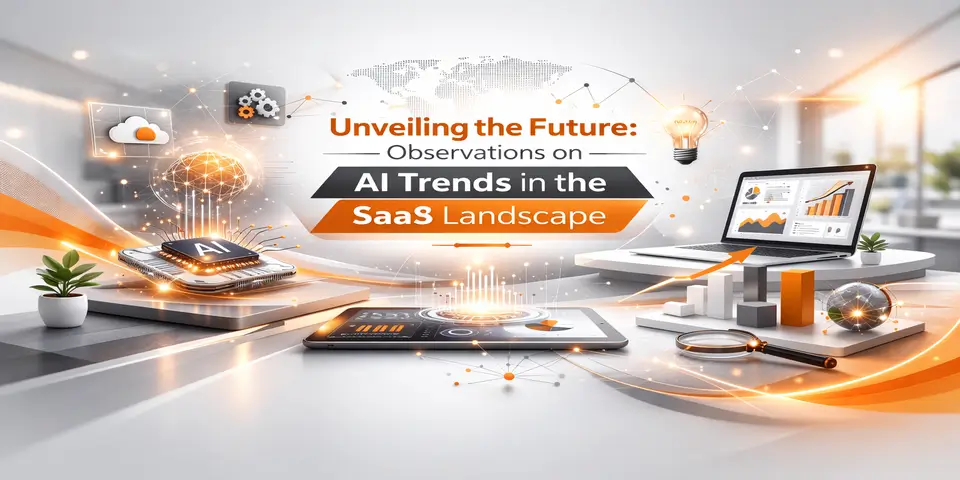Driving Growth for Hospitality & F&B Businesses in 2025
Transform Your Hospitality and F&B Business with Custom Web, Digital, and AI Marketing Solutions.
Ready to take your business to the next level? Let’s create a winning strategy together.
What's your thought?

Awesome! 5X begins here!
Please enter your details

"That’s disappointing, but understood."
Feel free to reach out when you're ready to grow.

Trusted by 1,000+ Brands as their preferred Digital Marketing agency in Mumbai. Chosen for One Reason: Results.










The Challenges Keeping You from Growth
Struggling to Keep Up with Digital Demands?
Without smart web designing for hospitality companies, today’s hotels, resorts, and F&B brands risk falling behind. Your digital presence may lack the seamless design experience modern guests expect. Your promotions might not convert, your social media may miss the mark, or your strategy could lack insights from AI experts for hospitality firms.
When online reservations slow down or marketing doesn’t deliver, the impact on your business is clear. If your digital marketing for the hospitality industry isn’t agile, data-led, and designed for engagement, you’re losing visibility, bookings, and revenue to competitors.
Your Pain Points, Solved
Low Online Reservations
Guests can’t find or book you online
Ineffective Marketing Campaigns
Your promotions aren’t driving foot traffic or bookings.
Outdated Website Design
Your site feels clunky, outdated, or non-mobile-friendly
Missed Social Media Opportunities
Your platforms fail to attract or engage your audience.
Your Growth Partner in Hospitality and F&B Digital Marketing
Our proven CORE Framework delivers results where it matters most - your profitability
At Syspree, we blend creativity with strategy through our CORE (Consult, Optimize, Reinforce, Excel) Framework. Whether designing a seamless online reservation system, running high-converting social media campaigns, or implementing AI-powered tools to automate marketing, we focus on measurable success for your hospitality or F&B business.

Consult
Customized strategies tailored to your unique needs

Optimize
Fine-tuned solutions that enhance website speed, design, and functionality

Reinforce
Data-driven campaigns to maximize bookings and customer loyalty

Excel
Advanced AI tools to stay ahead of the competition.

Consult
Understand your niche and define measurable goals.

Optimize
Tailor web design, SEO, and campaigns for peak performance.

Reinforce
Build authority with content marketing and thought leadership.

Excel
Use AI-powered insights for scalable, profit-driven strategies.

Optimize
Fine-tuned solutions that enhance website speed, design, and functionality

Consult
Customized strategies tailored to your unique needs.

Reinforce
Data-driven campaigns to maximize bookings and customer loyalty

Excel
Advanced AI tools to stay ahead of the competition
Testimonials
What Our Clients Achieved with Us



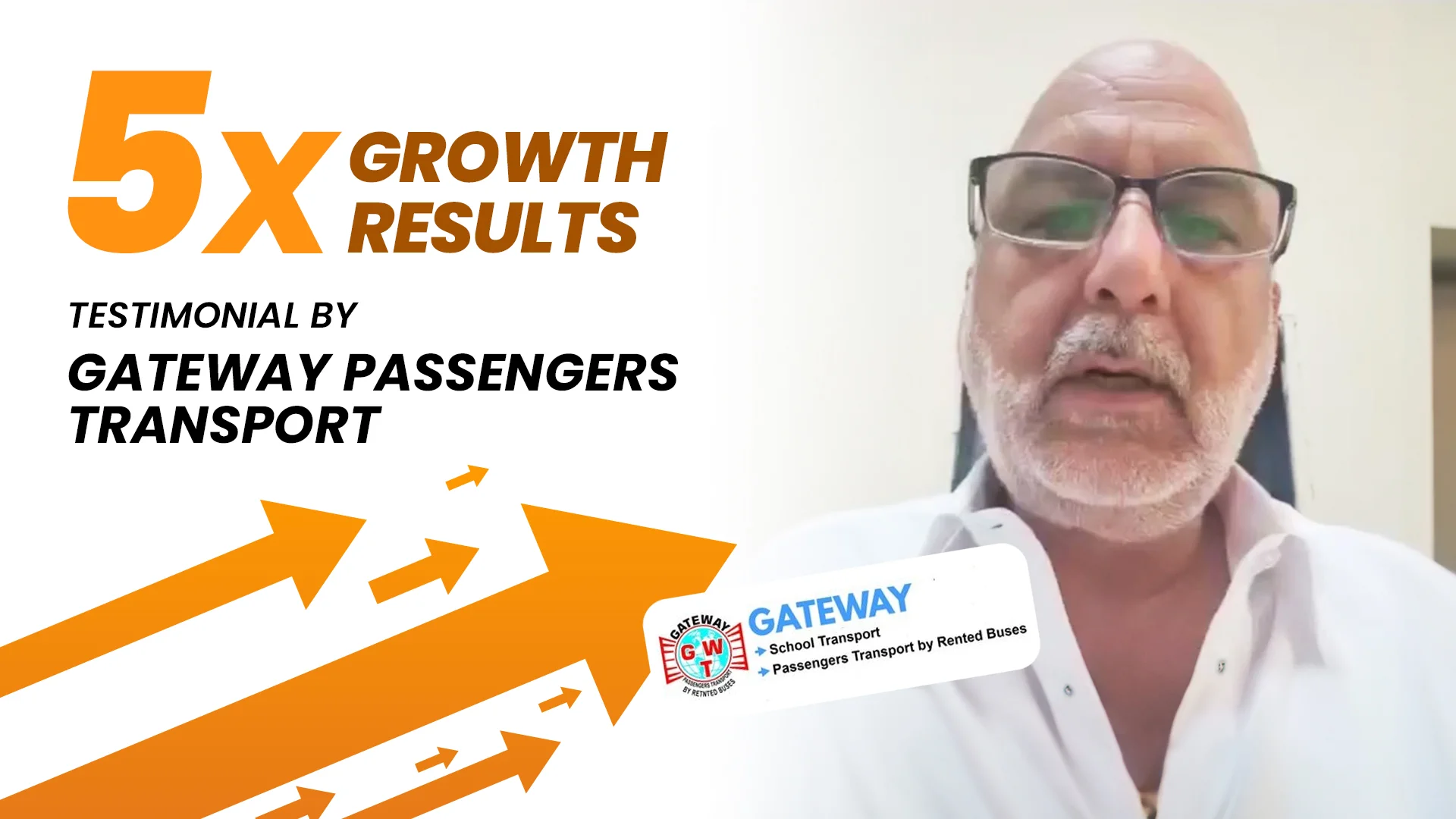

Our Capabilities
Header: Comprehensive Solutions Tailored for Hospitality and F&B
Web Development for Hospitality
Build responsive, visually stunning websites with seamless booking integration.
Digital Marketing for Hospitality Industry
Run campaigns that fill tables and rooms—boost visibility across search, social, and local maps.
AI for Hospitality
AI helps hospitality businesses enhance guest experience, automate operations, and boost revenue through smart insights.
IT for Hospitality
Smart IT solutions that simplify hotel operations and enhance guest experiences.
Outsourcing for Hospitality
We manage your digital marketing so you can focus on delivering great guest experiences.
Web Designing for FnB Brands
We design attractive, fast websites that help food & beverage brands engage customers and boost orders.
Digital Marketing for FnB Industry
helps food brands attract customers, boost online orders, and grow their brand online.
AI for FnB
AI helps FnB brands grow by improving customer experience and increasing sales through smart data insights.
IT for FnB
End-to-end IT support to digitize and scale your food and beverage business.
Outsourcing for FnB
Lets food brands save time and grow faster by leaving marketing and operations to experts.
Websites That Deliver Real Results
Success Stories That Inspire Confidence
From doubling conversions to reducing bounce rates, Syspree’s websites consistently deliver results. Check out our case studies for in-depth stories of businesses like yours achieving success.
Tailored Designs for Your Unique Needs
Solutions for Every Industry
Our Global Presence
Countries We are Present In

Fueling Growth Through Data Excellence
Proven Success in Numbers
OUR LEADERSHIP


Our leadership ensures Syspree delivers innovation and measurable results through expert website design and development strategies.
OUR TEAM























Our skilled team combines creativity with precision, building websites that deliver exceptional user experiences and business results
CASE STUDIES
Proven Results Across Industries
Explore how Syspree has helped businesses across industries achieve measurable growth with tailored digital marketing and web development strategies. From e-commerce to tech startups, our custom solutions deliver proven results that drive revenue, improve customer acquisition, and enhance brand visibility
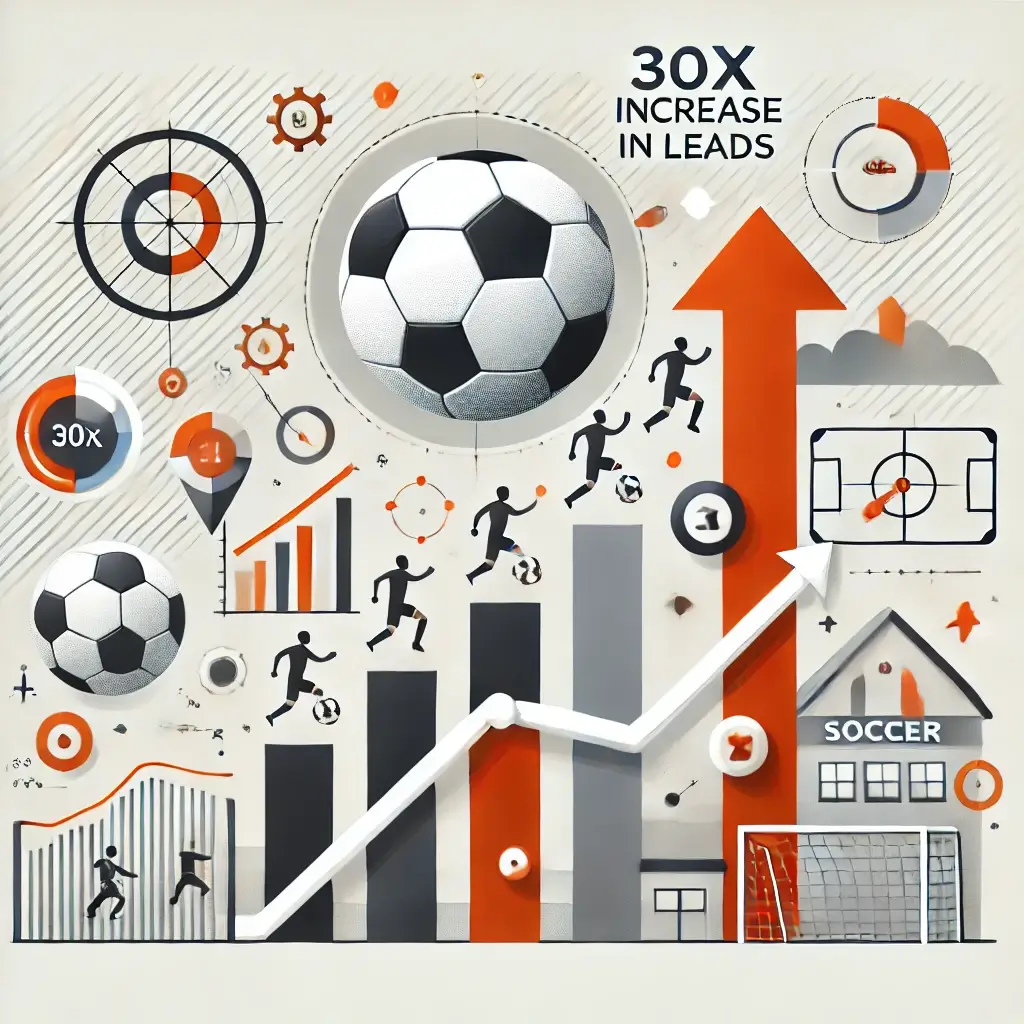
CASE STUDIES
30 Times Surge in Leads within a year
Sports Coaching Company

CASE STUDIES
Astounding 800% Increase in FMCG Distributor’s Web Traffic in Just 13 Months!
FMCG Distributors
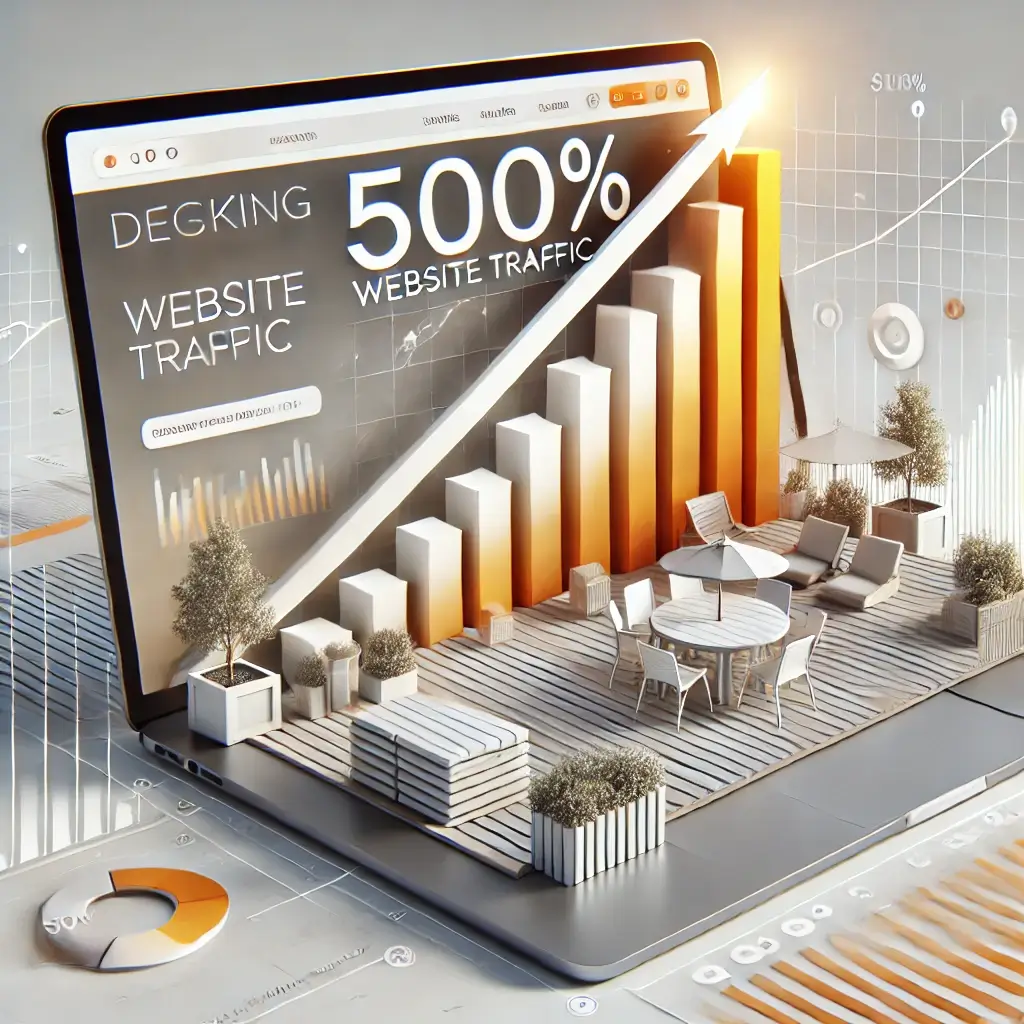
CASE STUDIES
500% Traffic boost in only 6 months
DECKING AND PATIO COMPANY
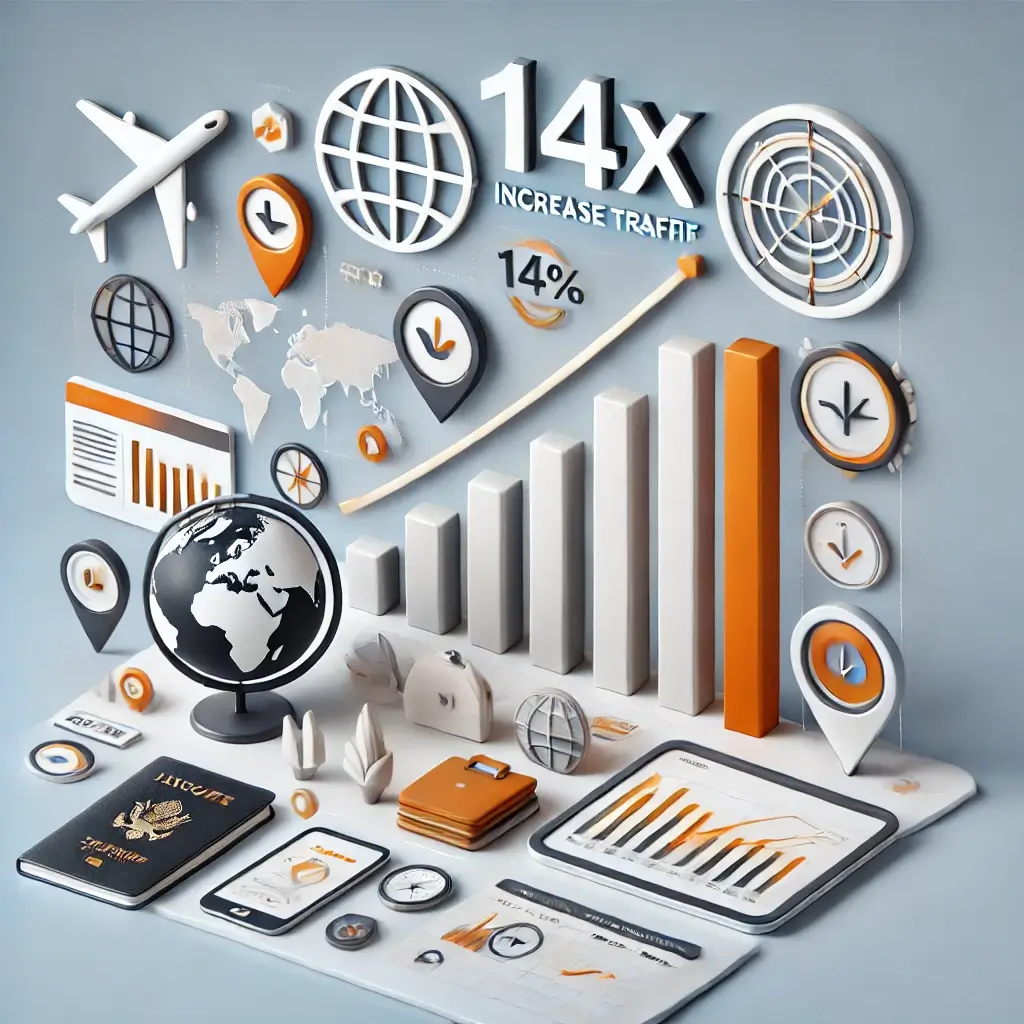
CASE STUDIES
Improve Your Traffic by 1400% In Just 2 months!
Immigration Company

CASE STUDIES
900% Traffic Surge in Just 1.5 Years
Holistic Lifestyle
e-commerce
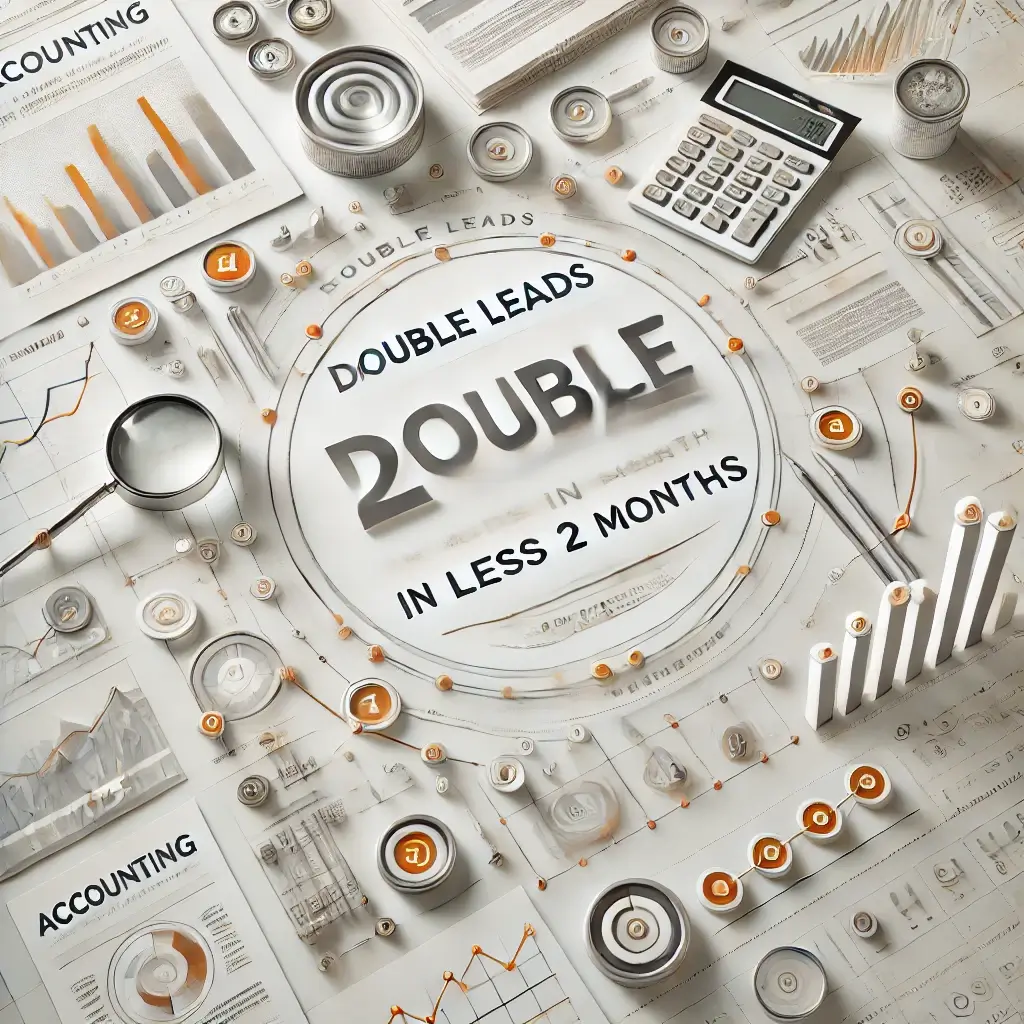
CASE STUDIES
Double Leads for Accounting company in just 2 months
Accountants and corporate services
OUR EXPERTISE, YOUR KNOWLEDGE
Blogs, Podcasts,Vlogs

Top Web Development Tips for Interior Designers
We spread the KNOWLEDGE
Blogs, Podcasts,Vlogs
- All Posts
- : SaaS Web Design Strategy
- Abu Dhabi
- Adelaide
- Africa
- Ahmedabad
- AI & Innovation
- AI & Personalization
- AI & SaaS Personalization
- AI & Workforce Strategy
- AI Automation
- AI in E-commerce
- AI in SaaS Marketing
- AI in Technology
- AI in Technology Business
- AI Innovation in E-commerce
- AI Marketing
- AI Strategy
- AI Strategy in E-commerce
- AI Success Stories
- AI Success Stories in E-commerce
- AI Trends in the SaaS
- AI vs Human Strategy
- Ajman
- Analytics & CRO
- Artificial Intelligence
- Bahrain
- Belgium
- Bengaluru
- Birmingham
- Blogs
- Branding and Marketing Services blog
- Brazil
- Business Growth
- Canada
- Canberra
- chennai
- Chicago
- Consulting
- Consulting Business Growth
- Consulting Growth Stories
- Consulting Lead Generation
- Consulting Marketing
- Consulting Strategy
- Content Marketing
- Corporate Services
- Corporate Services Growth
- Custom Software
- Customer Support
- Cyber Security
- Data Management
- data privacy compliance
- Data Protection
- data protection strategies
- data security solutions
- Decking Business Digital Marketing
- Delhi
- Digital FnB Marketing
- Digital Marketing
- Digital marketing for Tech
- Digital Tourism Marketing
- E-commerce Consumer Behavior
- E-commerce Conversion Optimization
- E-commerce Digital Marketing
- E-commerce Growth Stories
- E-commerce IT Best Practices
- E-commerce IT Infrastructure
- E-commerce IT Security
- E-commerce IT Strategy
- E-commerce IT Success Stories
- E-commerce Lead Generation
- E-commerce Marketing
- E-commerce Marketing Analytics
- E-commerce Marketing Strategy
- E-commerce Marketing Success Stories
- E-commerce Outsourcing
- E-commerce Outsourcing Analysis
- E-commerce Outsourcing Risks
- E-commerce Outsourcing Strategy
- E-commerce Outsourcing Success Stories
- E-commerce Outsourcing Trends
- E-commerce SEO
- E-commerce Social Media Marketing
- E-commerce Success Stories
- E-commerce UX/UI
- E-commerce Web Design
- E-commerce Web Design Strategy
- E-commerce Web Design Trends
- Ecommerce
- Edinburgh
- Education
- Education Analytics
- Education Business Growth
- Education Business Models
- Education Growth Stories
- Education Growth Strategies
- Education Lead Generation
- Education Marketing
- Education Strategy
- FnB Brand Strategy
- FnB Business Growth
- FnB Business Models
- FnB Industry Trends
- FnB Lead Generation
- FnB Marketing Analysis
- FnB Performance Metrics
- FnB Sales Channels
- FnB Success Stories
- France
- Fujairah
- Future of AI
- Future of AI in E-commerce
- Future of E-commerce IT
- Future of E-commerce Marketing
- Future of E-commerce Outsourcing
- Future of Education
- Future of FnB
- Future of Healthcare
- Future of Hospitality
- Future of Interior Design
- Future of Renovation
- Future of SaaS
- Future of SaaS Marketing
- Future of SaaS Web Design
- Future of Tech Business
- Future of Technology IT
- Future of Technology Marketing
- Future of Technology Outsourcing
- Future of Technology Web Design
- Future of Tourism
- Future of Travel Industry
- Ghana
- Goa
- Google Ads
- Graphic designing
- Guides
- Healthcare
- Healthcare Analytics
- Healthcare Business Growth
- Healthcare Business Models
- Healthcare Growth Stories
- Healthcare Growth Strategies
- Healthcare Lead Generation
- Healthcare Marketing
- Healthcare Strategy
- HongKong
- Hospitality Brand Management
- Hospitality Business Growth
- Hospitality Business Models
- Hospitality Consumer Behavior
- Hospitality Distribution Strategy
- Hospitality Expansion Stories
- Hospitality Industry Trends
- Hospitality Lead Generation
- Hospitality Performance Metrics
- Hospitality Pricing Strategy
- Hospitality Success Stories
- Hyderabad
- Information Technology
- Interior Design Growth Stories
- Interior Design Lead Generation
- Interior Design Marketing
- Interior Design Strategy
- Interior Design Trends
- Ireland
- IT Services
- Job Post
- Kenya
- Lead Generation for Tech
- Lead Generation for Training Companies
- Leeds
- Logo Designing services blog
- London
- Los Angeles
- Malaysia
- Marketing and Sales
- Marketing Strategy for Tech
- Marketing Technology
- Melbourne
- Miamai
- Miami
- Middle East
- Mumbai
- Nepal
- Netherland
- New York
- New Zealand
- Oman
- Others
- Outsourcing
- Paid advertising
- Pay Per Click
- Perth
- Philippines
- Podcasts
- Portugal
- Pune
- Qatar
- Ras-Al-Khaimah
- Renovation Business Growth
- Renovation Growth Stories
- Renovation Lead Generation
- Renovation Marketing
- Renovation Strategy
- Renovation Trends
- Roundup
- SaaS
- SaaS AI Strategy
- SaaS AI Success Stories
- SaaS Business Growth
- SaaS Conversion Optimization
- SaaS Digital Marketing
- SaaS Growth Stories
- SaaS Growth Strategies
- SaaS Lead Generation
- SaaS Marketing Analytics
- SaaS Marketing Strategy
- SaaS Marketing Success Stories
- SaaS Marketing Trends
- SaaS Metrics and Analytics
- SaaS Pricing Strategy
- SaaS SEO
- SaaS Strategy
- SaaS Success Stories
- SaaS Trends
- SaaS UX/UI
- SaaS Web Design
- SaaS Web Design Trends
- Scaling & Expansion in Training Businesses
- SEO
- SEO & Search Marketing
- SEO Strategies
- Sharjah
- social media marketing
- Social Media Marketing
- Spain
- Sri-Lanka
- Surat
- Switzerland
- Sydney
- Syria
- SySpree
- Tanzania
- Tech Business Growth
- Tech Business Models
- Tech Growth Frameworks
- Tech Growth Stories
- Tech Growth Strategy
- Tech lead Generation
- Tech Strategy & Innovation
- Technology
- Technology Digital Marketing
- Technology IT Best Practices
- Technology IT Infrastructure
- Technology IT Risk Management
- Technology IT Security
- Technology IT Strategy
- Technology IT Success Stories
- Technology IT Trends
- Technology Marketing Analytics
- Technology Marketing Strategy
- Technology Marketing Success Stories
- Technology Marketing Trends
- Technology Outsourcing
- Technology Outsourcing Analysis
- Technology Outsourcing Models
- Technology Outsourcing Risks
- Technology Outsourcing Strategy
- Technology Outsourcing Success Stories
- Technology Outsourcing Trends
- Technology SEO
- Technology Success Stories
- Technology UX/UI
- Technology Web Design
- Technology Web Design Strategy
- Technology Web Design Trends
- Thailand
- Tourism Business Growth
- Tourism Business Models
- Tourism Industry Insights
- Tourism Industry Trends
- Tourism Lead Generation
- Tourism Marketing Analysis
- Tourism Marketing Channels
- Tourism Pricing Strategy
- Tourism Success Stories
- Training Business Models & Industry Evolution
- Training Growth Stories
- Training Lead Generation
- Training Marketing
- Travel Analytics
- Travel Business Growth
- Travel Business Trends
- Travel Growth Stories
- Travel Lead Generation
- Travel Marketing
- Travel Marketing & Distribution
- Travel Strategy
- UAE
- UI/UX Design
- Vlogs
- Web Design
- Web Develipment
- Web Development
- White Label
Let’s Make Your Hospitality or F&B Brand the Talk of the Town
Contact us today to schedule a consultation. Discover how Syspree can transform your digital presence and help your business thrive.
FAQ
Your Consulting Questions Answered
In today’s highly competitive hospitality landscape, a well-designed website is no longer just a digital brochure—it’s your hotel or restaurant’s most powerful marketing asset. Whether you run a boutique hotel, a luxury resort, or a popular F&B establishment, your website often creates the first impression and directly influences bookings, customer trust, and brand loyalty.
That’s why web designing for hospitality companies has evolved into a strategic necessity. A great hospitality website combines intuitive design, persuasive storytelling, and advanced digital marketing integrations—often guided by AI experts for hospitality firms—to deliver seamless customer journeys and measurable results.
1. Visual Appeal That Reflects the Brand
First impressions are visual. Guests form opinions about your brand in seconds, and your website design should instantly communicate the experience they can expect on-site. A great hospitality website incorporates:
High-quality imagery and videos showcasing rooms, dining, ambiance, and amenities.
Aesthetic alignment with your brand’s personality (luxury, eco-friendly, family-friendly, etc.).
Mobile responsiveness to ensure flawless browsing on any device.
Top agencies offering web designing for hospitality companies know how to use layout, colour, and visual hierarchy to evoke emotion and inspire action—whether it’s making a reservation, booking a table, or exploring services.
2. User-Friendly Navigation for Seamless Experience
Frustrated visitors rarely convert. That’s why your hospitality website must be intuitive and easy to navigate. Key features include:
Clear menu structure with logical categorisation (Rooms, Menu, Services, Location).
Sticky call-to-action buttons like “Book Now” or “Reserve a Table.”
Fast-loading pages and a clutter-free design that simplifies decision-making.
The goal is to reduce friction and guide users from interest to booking effortlessly. This is where AI experts for hospitality firms can also contribute through behavioural insights and heatmap analysis to refine UX design and user flow.
3. Integrated Booking Systems for Instant Conversions
Your website should be a 24/7 booking engine. An effective hospitality website includes integrated, user-friendly reservation systems—whether for hotel rooms or restaurant tables. Features that enhance booking include:
Real-time availability calendars.
Instant booking confirmations.
Secure payment gateways.
Promo code integrations or loyalty program links.
Agencies offering digital marketing for the hospitality industry often tie these systems with Google Ads, social media, and retargeting campaigns to drive traffic directly to your booking engine, bypassing third-party commissions.
4. Optimised for Mobile and Speed
Over 60% of hospitality website visits happen on smartphones. A mobile-optimised website isn’t optional—it’s a Google ranking factor and a user necessity. Mobile UX must include:
Tap-friendly menus and CTA buttons.
Quick-loading content, ideally under 3 seconds.
Click-to-call features for fast reservations.
Web designing for hospitality companies that understand hospitality guests’ behaviour focus heavily on mobile-first frameworks, AMP (Accelerated Mobile Pages), and responsive image loading to avoid drop-offs.
5. Local SEO and On-Page Optimisation
A great website doesn’t just look good—it also performs on search engines. To be visible to guests searching for hotels or restaurants in your area, the site must be SEO-optimised. Key inclusions are:
Target keywords like “hotel in [location]” or “best restaurants near me.”
Schema markup for reviews, prices, events, or menus.
Location-based landing pages with Google Maps integration.
This is where digital marketing for the hospitality industry works hand-in-hand with design. SEO-friendly URLs, alt text, meta tags, and keyword placement ensure high visibility for competitive local searches.
6. AI-Powered Personalisation and Recommendations
Modern hospitality websites powered by AI can personalise experiences based on user behaviour, demographics, or intent. For example:
Showing special offers based on location or time of visit.
Offering tailored experiences for returning visitors.
Recommending rooms or dining options based on browsing history.
These strategies, developed by AI experts for hospitality firms, drive higher engagement and conversion rates. AI also powers chatbots, dynamic pricing tools, and data analytics dashboards to give hospitality businesses a significant edge.
7. Content That Builds Trust and Inspires Action
Your website content should speak directly to your ideal guests. Whether it’s highlighting your spa, explaining your food philosophy, or showcasing sustainable practices, compelling content builds trust. Include:
Guest testimonials and video reviews.
Detailed FAQs addressing common queries.
A blog that covers travel tips, local events, or culinary updates.
Digital marketing for the hospitality industry leverages this content to attract organic traffic, engage visitors, and nurture leads via email campaigns and retargeting.
8. Security and Performance
No guest wants to input credit card data on an insecure site. Your hospitality website must be:
HTTPS secure with SSL certificates.
Regularly backed up and protected from cyber threats.
Monitored for uptime and speed.
Security is not just a technical detail; it directly affects user confidence and conversion. A reliable web designing agency for hospitality companies will ensure performance monitoring, server optimization, and GDPR-compliance are all covered.
9. Social Media Integration and Reputation Management
Your website and social media presence must complement each other. A great hospitality website features:
Instagram or Facebook feed embeds to showcase live updates.
Direct links to review platforms like TripAdvisor or Google Reviews.
Social proof in the form of influencer mentions, press features, or award badges.
Digital marketing for the hospitality industry often includes influencer campaigns, UGC (user-generated content) promotion, and online reputation management—all of which boost the brand image and website traffic.
10. Scalable, Future-Proof Architecture
Finally, your website should be built on a flexible CMS (like WordPress or headless CMS solutions) that allows:
Easy updates to menus, room availability, or promotions.
Scalability for launching new locations or services.
Integration with third-party tools like CRM, email marketing, or PMS.
Leading AI experts for hospitality firms also recommend predictive data modeling and integration with customer data platforms (CDPs) to refine future strategies based on actual guest behaviour.
Final Thoughts
A great hospitality website is the foundation of your online success. It does more than present information—it sells experiences, drives direct bookings, and positions your brand competitively. It’s where intuitive design, strategic marketing, and cutting-edge AI come together to deliver measurable ROI.
For hotels and restaurants aiming to stay ahead in 2025 and beyond, investing in high-quality web designing for hospitality companies, partnering with specialists in digital marketing for the hospitality industry, and embracing insights from AI experts for hospitality firms is not optional—it’s essential.
In the hospitality sector, especially the competitive restaurant industry, visibility is everything. Great food and service matter—but they only help if people walk through your doors or order online. That’s where digital marketing for the hospitality industry becomes your most powerful growth engine.
With diners increasingly searching for places to eat via Google, Instagram, food delivery apps, and online reviews, restaurants that embrace smart digital strategies significantly outperform those that rely solely on traditional word of mouth. Today’s leading brands are achieving this with the support of strategic partners skilled in web designing for hospitality companies and guided by AI experts for hospitality firms.
Let’s explore how digital marketing improves visibility and drives customer acquisition for restaurants.
1. Search Engine Optimisation (SEO) Brings You to the Top
The first place people turn to when looking for a place to eat is Google. Whether they search for “best Italian restaurant near me” or “vegan brunch in [location],” your visibility on search engines determines your foot traffic and online orders.
Digital marketing for the hospitality industry starts with local SEO:
Optimising your Google Business Profile (formerly Google My Business)
Adding structured data like menus, reviews, and business hours
Creating location-specific landing pages with high-intent keywords
Agencies skilled in web designing for hospitality companies ensure your restaurant site is optimised for both desktop and mobile search, ensuring top rankings for local food-related queries.
2. Social Media Amplifies Brand Awareness
Platforms like Instagram, Facebook, and TikTok have become visual search engines for food lovers. Eye-catching content, influencer collaborations, and user-generated posts can significantly increase your visibility.
Here’s how digital marketing experts approach social media for restaurants:
Sharing high-quality images and reels of dishes, ambiance, and events
Partnering with local influencers or food bloggers
Using geo-targeted hashtags to reach nearby users
Running contests or giveaways to boost shares and saves
AI experts for hospitality firms now use predictive analytics to determine which types of content drive the most engagement, ensuring every post serves a purpose.
3. Paid Ads Attract Targeted, High-Intent Diners
One of the most direct ways to attract new customers is through paid advertising. This includes:
Google Ads targeting users searching for “[cuisine] restaurant near me” or “restaurant open now”
Social media ads promoting limited-time offers, events, or happy hours to a hyper-local audience
Retargeting ads that remind website visitors to complete a booking or order
Digital marketing for the hospitality industry uses ad platforms with advanced targeting—demographics, location, behaviour—to attract the right audience. Plus, AI-driven campaign optimisation ensures you spend efficiently and get measurable ROI.
4. Online Reviews and Reputation Management Build Trust
Before booking a table or ordering online, most customers read reviews. A strong online reputation boosts your visibility on platforms like:
Google Maps
TripAdvisor
Zomato
Yelp
Swiggy or Uber Eats (for delivery ratings)
Digital marketing agencies help you:
Encourage satisfied customers to leave reviews
Monitor and respond to feedback promptly
Address negative reviews constructively
AI experts for hospitality firms also analyse review data to extract insights about menu performance, service satisfaction, and guest expectations—helping refine your offering.
5. A Modern, Optimised Website Converts Visitors into Guests
Your restaurant’s website is a conversion tool—not just a menu holder. It should be:
Fast-loading and mobile-responsive
SEO-optimised with clear navigation
Integrated with online ordering or reservation systems
Well-executed web designing for hospitality companies means making the website visually appetising, informative, and action-driven. “Book a Table,” “Order Online,” and “View Menu” buttons should be prominent and functional.
Agencies also integrate AI chatbots to handle FAQs, suggest popular dishes, or upsell combo meals—making customer experience smoother and more interactive.
6. Email Marketing Nurtures Customer Loyalty
Email is one of the most cost-effective ways to stay connected with guests. Restaurants can use it to:
Send birthday or anniversary discounts
Promote seasonal or festive menus
Share behind-the-scenes stories or chef interviews
Offer loyalty program rewards
A smart digital marketing strategy for the hospitality industry segments email lists by dining preferences, visit frequency, or order history—ensuring messages are personalised and relevant. This level of targeting often involves help from AI experts for hospitality firms, who use machine learning to automate and optimise timing and content.
7. Data-Driven Insights Help You Make Smarter Decisions
Modern digital marketing isn’t guesswork—it’s analytics-driven. Restaurants can now track:
Which campaigns drive the most bookings
What content resonates with their audience
Which demographics are responding to promotions
With tools like Google Analytics, Meta Ads Manager, and email automation platforms, you get clear reports on reach, engagement, and conversions.
AI experts for hospitality firms take this further by offering predictive analytics. For instance, if bookings drop midweek, the system can recommend promo offers or push a social campaign at the optimal time.
8. Delivery App Optimisation Increases Online Sales
If you offer delivery, you’re likely listed on Swiggy, Zomato, Uber Eats, or DoorDash. However, simply being listed doesn’t guarantee visibility.
Digital marketing services improve your ranking and visibility by:
Using high-quality food photos
Adding compelling menu descriptions
Encouraging 5-star reviews and fast responses to complaints
Participating in platform-sponsored ad campaigns
Restaurants that work with AI experts for hospitality firms also use dynamic pricing models and trend forecasts to optimise menus and delivery timing for maximum profitability.
9. AI-Powered Personalisation Delivers Unique Guest Experiences
Imagine a customer browsing your website and being shown a personalised meal recommendation or offered a discount for visiting during off-peak hours. That’s the power of AI in digital marketing.
Advanced hospitality marketing uses:
Behavioural targeting for website users
Chatbots that remember past visits or preferences
Customised offers sent via email or SMS
These experiences make your brand memorable and elevate guest satisfaction—leading to more visits, higher spend, and long-term loyalty.
10. Consistent Branding Builds Recognition Across All Touchpoints
Consistency across platforms is crucial. Your logo, tone of voice, food photography, and storytelling must be uniform across your website, social media, Google profile, and delivery platforms.
That’s where full-service digital partners specialising in web designing for hospitality companies and digital marketing for the hospitality industry shine. They ensure a cohesive brand presence—from the first Google search to the Instagram Story highlight and the final delivery order.
Final Thoughts
In 2025, digital marketing is not just an option for restaurants—it’s your competitive advantage. From SEO and social media to AI-powered personalisation and review management, the strategies used by modern brands are multi-channel, data-led, and customer-focused.
To maximise your visibility and attract diners at scale, partner with specialists who understand hospitality challenges. The synergy of digital marketing for the hospitality industry, web designing for hospitality companies, and AI experts for hospitality firms gives you the tools to stand out in a crowded market, fill tables faster, and build lasting guest relationships.
Artificial Intelligence (AI) is transforming the hospitality landscape by enabling smarter marketing, personalized guest experiences, and data-driven decision-making. From predictive booking models to automated guest engagement, AI helps hospitality businesses operate more efficiently while delighting customers in new ways. At SySpree, our team of AI Experts for Hospitality Firms ensures that hotels, resorts, and restaurants leverage AI to drive revenue, increase customer satisfaction, and stay ahead in a fast-evolving digital marketplace.
In this guide, we explore the key benefits of AI marketing for the hospitality industry and how your brand can take advantage of these innovations.
1. Hyper-Personalisation Across the Guest Journey
One of AI’s most powerful capabilities is its ability to personalise marketing efforts at scale. Using customer data from booking histories, browsing behaviour, and past interactions, AI algorithms segment guests and tailor experiences across multiple touchpoints.
For example:
An AI-driven email campaign might recommend a spa service to a guest who previously booked wellness treatments.
A returning guest may see personalised offers when visiting the hotel website, increasing conversion likelihood.
This type of personalisation results in:
Higher engagement rates
Increased upsell opportunities
Improved guest loyalty
Web Designing for Hospitality Companies can be enhanced by integrating AI-powered recommendation engines that tailor on-site content in real-time—similar to how Netflix or Amazon personalise suggestions.
2. Predictive Analytics for Smarter Marketing Decisions
AI helps hospitality firms forecast demand, customer preferences, and seasonal trends. By analysing large volumes of structured and unstructured data, AI tools can:
Identify the most profitable customer segments
Predict when bookings are likely to spike or drop
Suggest optimal pricing and promotional strategies
This ensures that marketing budgets are allocated where they will yield the best return.
At SySpree, our Digital Marketing for Hospitality Industry solutions include predictive models that help hotels:
Determine ideal times for PPC and retargeting ads
Launch location-based offers for local traffic
Adjust social media campaigns based on predicted event traffic
3. Chatbots and AI-Powered Customer Support
Today’s travellers expect immediate answers—and AI delivers. AI-powered chatbots allow hospitality brands to offer 24/7 instant customer support, even without a human agent.
A well-integrated chatbot can:
Handle common queries (check-in times, amenities, bookings)
Suggest nearby attractions
Upsell packages or late checkouts
This reduces pressure on front-desk staff while improving response time and overall guest satisfaction.
Hotels can also implement voice-enabled assistants in-room or through mobile apps to enhance the guest experience.
4. Dynamic Pricing and Revenue Optimisation
Dynamic pricing is another powerful benefit of AI in hospitality marketing. AI systems track market demand, competitor pricing, booking trends, and local events in real-time to recommend optimal pricing strategies.
This helps hospitality businesses:
Maximise occupancy during off-peak periods
Avoid underpricing during peak demand
React instantly to market shifts
Our AI Experts for Hospitality Firms use machine learning tools to create automated pricing engines that deliver the right price at the right time to the right customer.
5. Enhanced Campaign Performance through Automation
AI significantly enhances the performance of digital marketing campaigns. It can automatically:
Optimise Google Ads based on user interaction
Adjust bids on high-performing keywords
Refine ad copy using A/B testing insights
Schedule social media posts based on engagement history
With SySpree’s Digital Marketing for Hospitality Industry services, brands can leverage AI to run smarter PPC, social, and content marketing campaigns that get better results with less manual intervention.
6. Sentiment Analysis for Brand Monitoring
Understanding what guests are saying about your hotel or restaurant is vital. AI-powered sentiment analysis tools scan online reviews, social media mentions, and feedback surveys to detect patterns and emotions.
Benefits include:
Spotting recurring service issues early
Identifying what delights your customers
Enhancing reputation management efforts
When integrated with web designing for hospitality companies, these insights can guide UX changes or homepage messages to directly address common praise or concerns.
7. Voice Search and Visual Recognition Integration
AI is also fuelling the shift toward voice and image-based search. Travelers increasingly use voice assistants like Alexa or Siri to book hotels, check-in, or find nearby restaurants. AI enables hospitality brands to:
Optimise websites for voice queries (conversational SEO)
Add image recognition tools for room selection or AR previews
Improve accessibility with voice-activated web interfaces
SySpree helps hotels implement AI-driven web design strategies to ensure their digital presence is ready for emerging user behaviours.
8. Operational Efficiency and Cost Savings
AI marketing isn’t just about guest experience—it also helps reduce marketing costs and improve team productivity.
With automated email marketing, chatbot support, and predictive analytics in place:
Human teams spend less time on repetitive tasks
Campaigns require fewer manual adjustments
Budgets stretch further thanks to improved targeting
This makes AI marketing an essential component for both luxury resorts and budget hotels alike.
9. Real-Time Personalisation on Hotel Websites
Imagine a guest visiting your hotel website from London in November. An AI-enhanced website could:
Automatically detect location and serve winter staycation offers
Show content optimised for their weather or travel history
Present checkout fields pre-filled with stored user preferences
That’s the kind of real-time engagement AI enables—and it’s the future of web designing for hospitality companies.
10. Better Guest Retention Through Lifecycle Marketing
AI tracks the entire guest lifecycle and identifies the ideal moments to re-engage. For instance:
A guest who checked out two months ago may receive a personalised “We Miss You” offer.
Anniversary stays, birthdays, or holiday discounts can be triggered automatically.
This kind of smart lifecycle engagement leads to:
Increased repeat bookings
Higher average guest lifetime value
Strengthened emotional connection with your brand
With SySpree’s expert use of AI for hospitality marketing, your CRM and email platforms become intelligent tools, not just databases.
Final Thoughts: AI Is No Longer Optional—It’s the Future of Hospitality Marketing
The hospitality industry thrives on human connection, but in a digital-first world, AI enables that connection to scale. From smart personalisation to automated operations, hotels and restaurants that embrace AI marketing will stand out in an increasingly competitive environment.
As one of the top AI Experts for Hospitality Firms, SySpree helps hospitality brands seamlessly integrate AI into their digital strategies—from custom-built chatbots to predictive content engines.
Whether you’re a boutique hotel, a luxury resort, or a growing restaurant chain, we offer the most effective Digital Marketing for Hospitality Industry solutions backed by real AI innovation and flawless Web Designing for Hospitality Companies.
In the hospitality industry, your website is more than just a digital presence—it’s your most powerful conversion tool. Whether a potential guest is searching for a hotel, a fine dining experience, or a beachside resort, the quality of your web design often determines whether they choose to book with you or move on to a competitor. That’s why professional web designing for hospitality companies is a game-changer—it blends aesthetics, usability, and psychology to influence decision-making at every click.
From seamless navigation to persuasive visuals and intelligent booking flows, good web design plays a central role in boosting conversions. And when combined with smart digital marketing for the hospitality industry and innovations led by AI experts for hospitality firms, it can dramatically enhance the guest acquisition funnel.
Let’s explore how effective web design directly impacts customer booking decisions—and why getting it right matters more than ever.
1. First Impressions Drive Confidence
Visitors judge a hospitality website within seconds. If the site looks outdated, cluttered, or slow, they’re more likely to question your overall service quality. On the other hand, a clean, visually appealing website builds trust instantly.
Great hospitality web design features:
A modern, responsive layout
High-resolution photos of rooms, food, staff, and facilities
A color scheme and typography that aligns with your brand identity
These visual elements reassure users that your hotel or restaurant delivers the experience they’re looking for, increasing their likelihood of booking.
2. Mobile Responsiveness Equals More Conversions
More than 70% of travel and dining searches happen on mobile. If your website isn’t optimised for smartphones, you’re losing out on a massive audience. Responsive web design ensures your site adapts perfectly to all screen sizes, offering the same quality experience on a phone as on a desktop.
Web designing for hospitality companies now follows a mobile-first approach, ensuring:
Tap-friendly buttons and menus
Fast-loading images and forms
Easy access to “Book Now” or “Reserve a Table” options
A well-structured mobile site ensures bookings can be made in seconds—not minutes—which directly increases your conversion rate.
3. Clear Navigation Reduces Friction
The booking process should be intuitive. A confusing or multi-step journey can frustrate users and cause drop-offs. That’s why professional hospitality websites feature:
Simple menus with logical categories (Rooms, Dining, Events, etc.)
Persistent CTAs (calls to action) like “Book Now” always in view
Breadcrumb navigation and visual hierarchy to keep users oriented
Good web design removes every possible barrier to conversion. It gently guides users from browsing to booking without friction, increasing the chances of completed reservations.
4. Fast Loading Times Influence Bounce Rates
Speed is non-negotiable. A 1-second delay in load time can lead to a 7% drop in conversions. Hospitality websites, especially those with image-heavy pages, must be optimised for performance.
Web designers ensure this by:
Compressing images without compromising quality
Using modern formats like WebP
Leveraging browser caching and CDN networks
At SySpree, our digital marketing for hospitality industry team works closely with developers to ensure fast load times that align with Google’s Core Web Vitals—boosting both user experience and search engine rankings.
5. Persuasive Design Elements Build Desire
Web design is psychological. The layout, imagery, and copy should guide visitors to picture themselves enjoying your services. Consider how luxury hotels use aspirational images, or how cozy cafés use warm, inviting tones.
Key persuasive elements include:
Virtual tours or video walkthroughs
Guest testimonials displayed strategically
Trust badges (awards, ratings, or hygiene certifications)
Countdown timers or limited-time offer banners
These visual and emotional cues create urgency and desire, which directly influence booking decisions.
6. Integrated Booking Systems Enable Instant Action
If users can’t book directly on your site, they may look elsewhere. That’s why modern hospitality websites feature:
Real-time availability checkers
Dynamic room rates or table scheduling
Easy-to-use reservation forms
These features should be part of the website’s native environment—not third-party popups that open in new windows. Web designing for hospitality companies ensures your booking engine is frictionless and fully integrated with the overall UX, creating trust and keeping users focused on completing the action.
7. AI-Powered Personalisation Enhances Engagement
Advanced hospitality websites now integrate AI to deliver dynamic content. AI can personalise offers, display local weather-based packages, or highlight the most-viewed rooms to nudge decisions.
AI experts for hospitality firms often deploy tools like:
Chatbots that answer booking-related questions in real-time
Predictive banners (“Only 2 rooms left at this rate!”)
Geo-targeted offers or time-sensitive deals
These personalised touches can significantly increase booking intent and elevate the customer experience, making your site feel tailored to each visitor.
8. SEO-Optimised Structure Drives Organic Traffic
A beautifully designed website is only useful if people can find it. That’s why web design must align with SEO best practices, such as:
Crawlable structure with clear headings (H1-H3)
Schema markup for reviews, FAQs, and events
Descriptive meta tags and image alt attributes
Clean URL structures with target keywords
SySpree combines web design and digital marketing for the hospitality industry to ensure your site not only looks amazing but also ranks high on Google, attracting qualified traffic ready to convert.
9. Emotional Storytelling Through UX and Design
Great web design tells a story. From the moment users land on your homepage, every visual and textual cue should lead them deeper into your brand’s narrative.
Examples:
A romantic getaway hotel may start with couples strolling on the beach, followed by spa and suite visuals.
A farm-to-table restaurant might showcase its organic origins, chef profiles, and sustainability mission.
These design choices foster emotional connections. People don’t just book rooms—they buy experiences. Design is what communicates that experience online.
10. Consistency Across All Pages Builds Trust
Booking requires confidence. If your homepage looks different from your booking page or your About section has a different tone, it creates doubt. Good web design ensures visual and tonal consistency across:
Desktop and mobile views
Website and booking engine
All landing and promotional pages
Consistency boosts credibility—and credible websites convert better.
Final Thoughts
Web design has a direct and measurable impact on customer booking decisions. A well-designed website doesn’t just look good—it converts visitors into paying guests, encourages trust, and showcases your hospitality brand at its best.
With SySpree’s expert services in web designing for hospitality companies, we ensure that every pixel is aligned with your goals. Backed by data-driven digital marketing for the hospitality industry and innovative strategies from AI experts for hospitality firms, we create websites that not only engage users but move them to book.
In today’s competitive market, your website isn’t just a tool—it’s your best-performing sales channel. And when it’s designed right, it works 24/7 to keep your rooms filled, your tables reserved, and your brand remembered.
Search Engine Optimization (SEO) is a cornerstone of digital success for any hospitality brand looking to attract both local guests and international travellers. In an age where travel decisions begin with a Google search—whether it’s “luxury hotel near me” or “best restaurants in Dubai”—appearing on the first page of search results can mean the difference between a fully booked calendar and an empty lobby.
At SySpree, we offer dedicated Digital Marketing for Hospitality Industry solutions that include AI-driven SEO strategies to help hotels, resorts, and restaurants gain visibility across global and local markets. When executed with precision, SEO doesn’t just bring in traffic—it brings in the right traffic.
1. The Foundation: Search Visibility and Discovery
Hospitality businesses depend heavily on being found at the right time. When travellers are planning trips or searching for last-minute bookings, they use location-based and intent-driven keywords like:
“Affordable beachfront resorts in Goa”
“Best fine-dining restaurant near Times Square”
“Luxury hotels in Dubai for honeymoon”
SEO helps your business appear in those critical searches, ensuring that both global explorers and local diners discover your offerings. With strategic keyword placement, structured content, and location-based schema markup, Digital Marketing for Hospitality Industry specialists like SySpree make your web presence more relevant and findable.
2. Local SEO: Winning Nearby Searches
Local SEO is vital for hospitality firms targeting nearby customers. If you own a boutique hotel, spa, or restaurant, local searches drive high-conversion traffic, especially when integrated with:
Google Business Profile optimization
Local citations (TripAdvisor, Yelp, Zomato, etc.)
Geo-tagged images and location keywords
For example, when someone searches “rooftop bars near me” or “best hotel deals in Bandra,” Google prioritizes businesses with strong local SEO. We ensure Web Designing for Hospitality Companies includes mobile optimization and local keyword integration, which plays a critical role in capturing nearby traffic.
3. International SEO: Attracting the Global Traveller
If your hospitality business serves international customers—think luxury resorts, wellness retreats, or globally franchised restaurants—you need international SEO strategies. These include:
Multilingual website support
Hreflang tags for geo-targeting
Currency and regional booking preferences
Region-specific landing pages
AI-powered tools used by SySpree’s AI Experts for Hospitality Firms help analyze different audience behaviors from various regions and customize content accordingly. When your hotel in Kerala ranks for “Ayurvedic retreat in India” in the UK or Germany, your SEO is working globally.
4. SEO-Optimized Web Design Converts Interest Into Bookings
SEO is no longer just about rankings—it’s about user experience. A fast, responsive, well-structured website can improve dwell time and lower bounce rates—both of which are ranking signals. At SySpree, we blend Web Designing for Hospitality Companies with on-page SEO to ensure that each page not only looks great but also ranks well.
Key features include:
Intuitive navigation and booking flow
Optimized headings (H1–H4) with hospitality-related keywords
Descriptive meta tags and schema
Clean code and mobile-friendly layouts
This cohesive SEO+UX integration encourages users to explore, book, and return—whether they’re first-time guests or returning visitors.
5. Content Marketing as an SEO Strategy
SEO isn’t just technical—it’s also content-driven. Our Digital Marketing for Hospitality Industry approach includes regular publishing of:
Blog posts on local attractions
Travel guides and itinerary ideas
Seasonal promotions
Guest experiences and testimonials
This content isn’t just informative; it’s keyword-rich and built to rank. A blog titled “Top 5 Hidden Beaches in Bali Near Your Resort” can attract a global audience searching for those exact experiences.
Additionally, incorporating long-tail keywords such as “family-friendly budget resorts near Andheri East” makes your site highly relevant for very specific, purchase-ready search queries.
6. Mobile and Voice Search Optimization
With more users relying on smartphones and voice assistants like Siri, Alexa, and Google Assistant, hospitality SEO must evolve. SySpree ensures Web Designing for Hospitality Companies includes voice-search optimization by:
Using natural, conversational keywords
Structuring content for Q&A formats
Speeding up load times
Ensuring click-to-call and location buttons are accessible
When someone asks, “What’s the best vegetarian restaurant open now near me?”—your business should be the answer.
7. AI-Enhanced SEO for Smarter Targeting
Modern SEO in the hospitality sector requires real-time data analysis and predictive intelligence. Our team of AI Experts for Hospitality Firms deploys tools that:
Track seasonal search trends
Predict shifts in traveler intent
Customize meta content and descriptions dynamically
Recommend changes based on competitor movement
AI ensures your SEO stays agile and relevant, especially in a fast-moving industry like hospitality where customer behavior and market dynamics shift frequently.
8. Analytics and Continuous Optimization
SEO isn’t a one-time effort. It’s a dynamic, ongoing process. SySpree monitors performance using:
Google Search Console
AI-powered heatmaps and funnel tracking
Local and international keyword trend analysis
Booking behavior metrics
This allows us to tweak SEO strategies in real time, ensuring that you don’t just get traffic—you get bookings.
Conclusion: SEO as a Revenue Engine for Hospitality Brands
Attracting both international and local travellers in today’s digital world requires more than just being online—it demands being visible, discoverable, and trustworthy at every stage of the customer journey. SEO makes this possible.
From technical structure and local optimization to multilingual support and AI personalization, the right strategy can position your hospitality brand for continuous, qualified growth. At SySpree, we combine Digital Marketing for Hospitality Industry, intelligent Web Designing for Hospitality Companies, and the expertise of AI Experts for Hospitality Firms to create SEO campaigns that drive occupancy, dining traffic, and guest loyalty—at scale.
For hotels and hospitality brands, relying heavily on Online Travel Agencies (OTAs) can eat into your profit margins and dilute brand identity. While OTAs offer visibility, they often charge high commissions and retain control over the guest relationship. That’s why building a strong digital marketing strategy is key to boosting direct bookings—and this is where Digital Marketing for the Hospitality Industry becomes indispensable.
At SySpree, we help hospitality brands implement a multi-channel digital strategy that combines Web Designing for Hospitality Companies, AI-driven insights, and conversion-focused marketing to help drive more direct traffic, increase guest loyalty, and reduce OTA dependence.
1. Optimise Your Website for Conversion and Experience
Your website is the foundation of your direct booking strategy. A well-designed website must load fast, look stunning across devices, and lead users seamlessly from browsing to booking. This is where expert Web Designing for Hospitality Companies plays a pivotal role.
Features to include:
Prominent “Book Now” buttons
Real-time pricing and availability
Clear cancellation/refund policies
Guest reviews and user-generated content
Fast and mobile-friendly UX
A well-structured site with an intuitive booking engine gives potential guests the confidence to book directly rather than clicking away to an OTA.
2. Leverage SEO to Rank Higher and Attract Intent-Driven Traffic
A strong Search Engine Optimization (SEO) strategy ensures that your hotel or restaurant appears when users search for relevant terms like “luxury hotel in Dubai” or “best beachfront resort near me.”
What makes SEO vital:
Brings in high-quality, organic traffic
Reduces your need to spend on paid listings
Boosts visibility in local and international markets
SySpree, a trusted provider of Digital Marketing for Hospitality Industry, uses both on-page and off-page SEO, including:
Targeted keywords for your brand and location
Schema markup for rich results
Mobile-first SEO
Google Business Profile optimization
Multilingual SEO (for global markets)
SEO drives discovery and fuels direct booking opportunities over time.
3. Use Paid Search & Retargeting Wisely
Paid media, particularly Google Ads and Meta ads, can be strategically used to capture high-intent users and redirect past visitors back to your site.
Key strategies:
Branded PPC campaigns to prevent OTAs from stealing your clicks
Dynamic remarketing showing your rooms or facilities
Geo-targeted ads for travelers currently in your destination
Limited-time direct booking discounts or bonuses
Using PPC with precision allows you to undercut OTAs on your own brand name—and retarget warm leads who didn’t convert the first time.
4. Promote Exclusive Direct Booking Benefits
Most guests stick to OTAs because of familiarity and convenience. You need to create incentives to nudge them towards your site instead.
Offer:
Better prices for booking direct
Free upgrades or early check-in
Complimentary breakfast or dining credits
Loyalty rewards and points
Prominently display these on your homepage, in pop-ups, and on landing pages. SySpree’s expertise in Web Designing for Hospitality Companies ensures these offers are showcased without disrupting the UX.
5. Email Marketing to Nurture Repeat Guests
Email remains one of the most cost-effective tools to increase direct bookings, especially with guests who’ve stayed before or browsed your site.
Tactics include:
Cart abandonment emails
Post-stay offers with discounts
Personalized emails powered by AI tools
Birthday/anniversary promotions
Newsletters with travel guides or local events
As AI Experts for Hospitality Firms, SySpree helps you build smart automation workflows that send the right message at the right time, increasing loyalty and re-bookings.
6. Content Marketing to Build Trust and Attract Organic Visitors
Useful, engaging content helps your brand stand out and builds trust before the booking decision.
Examples:
Blog posts: “Top 10 Things to Do Near Our Hotel”
Local guides and downloadable itineraries
Video room tours and 360-degree facility walkthroughs
Behind-the-scenes hospitality team stories
This content is not only good for SEO but also builds brand credibility. Content creation is a core pillar of SySpree’s Digital Marketing for Hospitality Industry services.
7. Integrate Social Media to Drive Engagement and Trust
Your Instagram and Facebook pages are modern-day trust signals. They showcase guest experiences, amenities, and unique aspects of your brand.
Use these platforms to:
Highlight happy guest reviews and user-generated content
Promote flash deals for direct bookings
Run contests or influencer collaborations
Offer sneak peeks of rooms or events
And always link back to your website’s booking engine—SySpree helps you integrate social with web design for a cohesive digital funnel.
8. Utilise AI for Personalisation and Insights
AI-driven tools allow you to personalise user journeys in real time and understand guest behaviour more deeply.
With support from AI Experts for Hospitality Firms, you can:
Recommend rooms based on browsing history
Personalise messaging by visitor type (e.g., solo traveller vs family)
Use predictive analytics to forecast peak booking periods
Automate pricing adjustments or offer bundles to increase conversion
AI isn’t just futuristic—it’s practical and profitable when aligned with your booking goals.
9. Track KPIs and Optimise the Funnel
All digital marketing efforts must be tracked. Important metrics include:
Conversion rate on booking pages
Bounce rate and time on site
Cost per acquisition for paid ads
Revenue per visitor
OTA vs direct booking ratio
At SySpree, we implement comprehensive tracking dashboards, CRO audits, and A/B tests to continuously optimise performance. The goal? Fewer clicks to booking and more money in your pocket—not the OTA’s.
10. Develop a Cohesive Brand That Guests Want to Return To
Finally, guests book directly when they feel an emotional connection to your brand. Your website, emails, social media, and content must tell one cohesive story.
A visually unified and emotionally engaging online experience builds long-term loyalty and trust—two ingredients that OTAs cannot replicate. That’s why Web Designing for Hospitality Companies and brand storytelling are so crucial.
Final Thoughts
To increase direct bookings and cut OTA costs, you must treat digital marketing as a revenue-generating engine, not an afterthought. With the right blend of SEO, website design, AI-driven tools, and customer-centric content, your brand can shift control back in your hands.
SySpree specialises in Digital Marketing for Hospitality Industry, combining web design, paid ads, content, and AI to help hotels, resorts, and restaurants thrive. Partner with us to reclaim your booking funnel and maximise long-term profitability.
In the fast-moving world of digital engagement, hospitality companies—from luxury resorts to boutique hotels and fine-dining establishments—are discovering the immense power of social media in creating memorable guest experiences and driving direct engagement.
With platforms like Instagram, Facebook, TikTok, LinkedIn, and YouTube playing a vital role in guest discovery and decision-making, using smart strategies can transform your online presence into a magnet for bookings and brand loyalty.
At SySpree, a trusted provider of Digital Marketing for Hospitality Industry, we help brands in this space build impactful social media strategies that engage, convert, and retain guests. Here’s how top hospitality brands are making the most of it.
1. Showcase Stunning Visual Content
Hospitality thrives on visuals. Whether you’re offering a beachside villa, rooftop dining, or spa experiences, captivating imagery and video content are essential.
Use high-resolution photos and videos of your property, amenities, rooms, and food.
Embrace 360° video tours, drone footage, and guest-generated content to build credibility.
Post regularly on Instagram, which is ideal for visually-driven storytelling. Use reels, carousels, and stories with behind-the-scenes views.
SySpree’s Web Designing for Hospitality Companies also ensures that visual assets used on your website align with your social strategy, creating a seamless brand experience across channels.
2. Leverage User-Generated Content (UGC)
Guests are your most authentic brand ambassadors. Encouraging UGC increases trust, engagement, and conversions.
Ask guests to tag your hotel or restaurant in their photos.
Run hashtag campaigns like #StayAt[HotelName] or #DineWithUs.
Share customer testimonials, reviews, or repost guest content (with permission).
This tactic, paired with strategies from our AI Experts for Hospitality Firms, can even use machine learning to identify trending content types and optimal posting times.
3. Use Influencer Marketing with Travel & Lifestyle Creators
Partnering with micro and macro influencers allows your brand to reach specific travel-oriented audiences organically.
Choose influencers whose audience aligns with your ideal guest profile.
Offer them a hosted stay or exclusive experience in return for honest promotion.
Ensure all influencer content reflects your core brand values—luxury, eco-consciousness, family-friendliness, etc.
SySpree helps hospitality brands vet influencers using AI-powered engagement analytics and content authenticity metrics—giving you confidence in every collaboration.
4. Share Valuable and Engaging Stories
Storytelling is a major component of social engagement. Tell the story of your staff, your local community, and the experiences guests can enjoy.
Post about local festivals, food culture, or historical landmarks near your hotel.
Introduce your team through “Meet the Staff” features.
Share time-lapse videos of sunsets from your property, or stories about sustainability initiatives.
When working on Digital Marketing for Hospitality Industry clients, SySpree often builds social calendars that incorporate brand narrative arcs, connecting audiences to something more than just rooms or dishes.
5. Launch Targeted Social Media Ad Campaigns
Organic reach is limited on many platforms, especially Facebook and Instagram. Paid social ads can effectively amplify your reach and drive conversions.
Use Facebook Ads Manager to retarget website visitors who didn’t book.
Promote seasonal packages or limited-time offers.
Target users based on travel intent, location, demographics, and interests.
We recommend integrating this with a smart landing page built through our Web Designing for Hospitality Companies service—this ensures ad clicks lead to high-converting destinations.
6. Engage with Guests in Real Time
Engagement isn’t just about posting—it’s about interaction.
Respond to comments, messages, and reviews promptly.
Use chatbots or AI-driven DMs on Instagram or Facebook for quick replies.
Conduct polls, Q&As, or interactive stories to keep your audience involved.
SySpree’s AI Experts for Hospitality Firms can help you implement intelligent conversational bots that answer FAQs, upsell services, and even help users book rooms via Messenger or Instagram DM.
7. Run Contests and Giveaways
Contests are a powerful tactic to increase engagement and visibility.
Encourage users to post about their experience or tag friends for a chance to win a free meal, spa session, or weekend stay.
Use this to build your email list and retarget later via email or custom audiences.
We suggest using a clear CTA and directing participants to a contest landing page built with Web Designing for Hospitality Companies best practices—ensuring data collection and conversions are optimized.
8. Optimize Hashtag Strategy and Geotagging
Strategic use of hashtags and geotags increases content discoverability, especially on platforms like Instagram and TikTok.
Use a mix of branded hashtags (#YourHotelName), niche tags (#LuxuryResortsIndia), and trending ones (#Wanderlust).
Always tag your location to attract local and international travellers looking in that area.
This tactic works hand in hand with your SEO efforts. A comprehensive Digital Marketing for Hospitality Industry plan connects hashtag research with keyword strategy across your social and search platforms.
9. Use Instagram and Facebook Stories Highlights
Stories Highlights help you organize content categories for new followers.
Create Highlights for Rooms, Amenities, Dining, Events, Offers, and Reviews.
Ensure each highlight has a branded cover and is updated regularly.
These Highlights act like a mini website within your profile, offering quick access to your most important content.
10. Measure What Matters with Analytics
Social media success isn’t just about likes—it’s about meaningful results.
Track reach, engagement, website clicks, and bookings.
Use UTM parameters to measure how social visitors interact with your website.
Adjust your strategy based on performance metrics.
As part of our Digital Marketing for Hospitality Industry services, SySpree provides detailed analytics reports with actionable insights. We help you understand what’s working—and what isn’t—so you can continuously refine your efforts.
Final Thoughts
Social media isn’t optional for hospitality businesses—it’s essential. The most successful hotels and restaurants use it not just to promote rooms and reservations but to build relationships, inspire future guests, and amplify their brand.
When paired with expert guidance from a team like SySpree—experienced in Web Designing for Hospitality Companies, Digital Marketing for Hospitality Industry, and AI Experts for Hospitality Firms—your social media strategy can become a growth engine. From UGC and influencer outreach to ad campaigns and automated engagement, we ensure your brand is not only seen but remembered.
Let’s make your hospitality brand the destination guests can’t wait to post about. Ready to elevate your presence? Let’s talk.
Measuring the return on investment (ROI) of your digital marketing efforts is essential for hotels, resorts, and restaurants aiming to grow profitably in a competitive hospitality landscape. Unlike traditional marketing, digital channels allow for precise tracking, testing, and optimization. At SySpree, a leading name in Digital Marketing for the Hospitality Industry, we empower hospitality brands to use data and analytics to maximize impact and minimize waste. Whether you’re a boutique hotel or a luxury resort, understanding your marketing ROI ensures that every rupee or dollar spent works toward your bottom line.
1. Why ROI Measurement Matters for Hospitality Businesses
Hospitality is a high-touch, service-oriented industry where customer experience and conversion rates are deeply intertwined. If you’re investing in Web Designing for Hospitality Companies, paid ads, SEO, social media, or email marketing, it’s critical to know how those efforts translate into real business results. Measuring ROI helps you:
Identify your highest-performing digital channels
Reduce spend on underperforming platforms
Allocate budget more efficiently
Improve targeting and guest personalization
Align marketing objectives with revenue goals
With the growing availability of AI Experts for Hospitality Firms, it’s now possible to make data-driven decisions faster and more accurately than ever before.
2. Define Your Objectives and KPIs First
Before calculating ROI, establish clear, measurable goals. These typically include:
Increasing direct bookings through your website
Reducing dependence on OTAs (online travel agencies)
Driving traffic from targeted locations (local and international)
Enhancing brand awareness
Improving guest engagement and loyalty
Key Performance Indicators (KPIs) that hospitality brands should track include:
Cost Per Acquisition (CPA)
Booking Conversion Rate
Average Revenue Per Guest
Customer Lifetime Value (CLV)
Return on Ad Spend (ROAS)
Organic Traffic from SEO
Engagement on social media platforms
These metrics provide the foundation for determining the success of your Digital Marketing Solutions in the Hospitality Industry.
3. Track Website Performance with Google Analytics and GA4
Your website is the nucleus of your digital presence. Implementing Web Designing for Hospitality Companies is only the beginning. Using tools like Google Analytics and the new GA4, you can track:
Total sessions
Bounce rate
Time spent on booking pages
Form submissions or calls
Booking funnel drop-offs
Source of conversions (SEO, social media, PPC, referrals)
This data helps determine how well your Digital Marketing for Hospitality Industry is performing and what can be improved. For example, if SEO brings more traffic but social media converts better, you can adjust your strategy accordingly.
4. Use CRM and Booking Software Integration
Integrating your CRM or hotel management system with digital marketing tools provides clarity on user behavior from discovery to booking. This seamless data flow enables you to:
Attribute revenue accurately to campaigns
Understand the full guest journey
Identify repeat customers
Personalize communications based on guest preferences
At SySpree, we work with AI Experts for Hospitality Firms to implement AI-powered CRM tools that automatically score leads, optimize remarketing strategies, and increase booking velocity.
5. SEO’s Role in Long-Term ROI
Unlike paid ads that stop delivering once you pause your campaign, SEO offers compounding value over time. When your website ranks high on Google for relevant keywords like “boutique hotels in Goa” or “best resort in Lonavala,” it brings in free, high-intent traffic consistently.
Tracking your SEO ROI involves measuring:
Organic traffic growth
Keyword ranking improvements
Increases in non-branded search impressions
Growth in bookings attributed to organic sessions
A specialized Digital Marketing Company for the Hospitality Industry like SySpree ensures that your SEO strategy includes technical optimization, content marketing, and local SEO to drive long-term ROI.
6. Measure Social Media ROI Beyond Likes
Social media is a powerful brand-building and guest engagement tool. But beyond vanity metrics like likes and follows, ROI comes from:
Direct bookings from social campaigns
User-generated content (UGC) that drives trust
Influencer partnerships that lead to reservations
Re-engagement of past guests via remarketing
We track metrics like Click-Through Rate (CTR), Cost Per Click (CPC), and assisted conversions to calculate true ROI. For example, a well-timed Instagram Reel highlighting your weekend brunch buffet could generate real table bookings.
7. Evaluate Paid Advertising Results (Google Ads, Meta, etc.)
With PPC and display ads, you get instant visibility but need close ROI tracking. Platforms like Google Ads and Meta Ads Manager offer robust analytics, including:
ROAS (Return on Ad Spend)
Cost per conversion
Ad frequency and reach
Geo-performance (Are your ads performing better in Dubai, Mumbai, or Singapore?)
With Digital Marketing Solutions in the Hospitality Industry, SySpree crafts ad campaigns that maximize yield per click and deliver actionable insights on guest acquisition.
8. Email Marketing and Loyalty Program ROI
Email marketing is one of the highest-ROI channels in hospitality when done right. Tracking these metrics is key:
Open rates and CTR
Bookings from email campaigns
Upsell and cross-sell success
Rebooking rate from loyalty emails
Automated email journeys powered by AI Experts for Hospitality Firms ensure your messages reach the right guest at the right time—whether it’s a reminder to book again or a discount for returning customers.
9. Monitor Reputation and Sentiment
Guest reviews and online reputation have a direct impact on bookings and revenue. Tools like ReviewPro and TrustYou help measure sentiment and the impact of your marketing on brand perception. High ratings not only drive trust but improve your SEO rankings as well.
A well-managed digital reputation strategy amplifies your ROI across every channel.
10. Calculating Your Digital Marketing ROI
The most common formula for ROI is:
ROI = (Revenue – Marketing Costs) / Marketing Costs × 100
Example:
If you spend ₹1,00,000 on marketing and generate ₹4,00,000 in direct revenue, your ROI is:
(₹4,00,000 – ₹1,00,000) / ₹1,00,000 × 100 = 300% ROI
But remember—real ROI also includes long-term brand equity, returning guest value, and savings from reduced OTA commissions.
11. Conclusion: Track, Learn, Grow
To thrive in the competitive hospitality landscape, you need to move beyond guesswork. With the right mix of Web Designing for Hospitality Companies, expert strategy, and performance analytics, SySpree helps you track, improve, and scale your digital marketing ROI.
By partnering with a results-driven Digital Marketing Company for the Hospitality Industry, you unlock the full value of every campaign. From AI-led optimization to platform-specific ROI tracking, our solutions are tailored for hotels and restaurants that want sustainable growth.
In the competitive hospitality industry, data isn’t just helpful—it’s essential. For hotels, resorts, restaurants, and tourism-focused businesses, working with a digital marketing agency that provides clear, actionable analytics and reporting is a game-changer. Knowing which marketing efforts generate bookings, boost visibility, and enhance guest engagement empowers hospitality brands to make smarter decisions, reduce costs, and increase profitability. That’s why at SySpree, a trusted name in Digital Marketing for Hospitality Industry, we believe in total transparency and performance-driven reporting.
This comprehensive guide explores the key metrics, tools, and reporting practices that every hospitality business should expect from a professional agency, particularly one specializing in Web Designing for Hospitality Companies, AI Experts for Hospitality Firms, and full-scale Digital Marketing Solutions.
1. Why Analytics Are Critical in Hospitality Marketing
Today’s consumers interact with hospitality brands across multiple channels—Google search, paid ads, social media, email, booking engines, and review platforms. Analytics help unify these touchpoints into a cohesive view of customer behavior. With accurate reporting, you can answer crucial questions:
Which channel drives the most bookings?
What’s the ROI of your digital campaigns?
Are users dropping off during the booking process?
How effective are your SEO and content efforts?
Analytics transform assumptions into insights, allowing you to optimize every digital strategy.
2. Essential Analytics Every Hospitality Brand Needs
a. Website Performance Analytics
An agency offering Web Designing for Hospitality Companies must track the website’s technical and behavioral performance. Metrics include:
Sessions and unique visitors – Who’s visiting your site and how often?
Bounce rate – Are users engaged, or are they leaving too quickly?
Session duration – How long do users stay?
Top landing pages – Which pages attract the most visits?
Mobile responsiveness and load speed – Crucial for modern users and SEO.
Tools Used: Google Analytics 4 (GA4), Hotjar, GTmetrix
b. Conversion Tracking and Booking Funnel Analytics
Your agency must implement tracking for every step of the booking journey, especially if your goal is to increase direct bookings. Expect detailed reporting on:
Booking engine traffic
Abandonment rate during checkout
Conversion rates by traffic source (SEO, PPC, social, etc.)
Event tracking for CTA clicks, form submissions, and reservations
This helps reduce OTA dependence and optimize user flow.
c. SEO Performance Reports
If you’re investing in Digital Marketing for Hospitality Industry, robust SEO reporting is non-negotiable. You need to know:
Keyword rankings – Are you ranking for “luxury hotels in Dubai” or “fine dining near me”?
Organic traffic growth – How much free traffic is SEO generating?
Backlink profile – Are you earning authoritative travel-related links?
Local SEO insights – Google Business Profile performance, map pack presence, reviews impact
Tools Used: Google Search Console, Ahrefs, SEMrush, Moz
3. PPC and Ad Campaign Analytics
Whether you’re running Google Ads, Facebook Ads, or display campaigns, your agency should provide monthly or even weekly insights into:
Impressions, clicks, and CTR (Click-through Rate)
Cost-per-click (CPC) and cost-per-conversion
Return on Ad Spend (ROAS)
Keyword-level performance
Geo-targeting results (Are local travellers converting better?)
Hospitality-focused ads must be measured for both brand awareness and booking intent. An experienced Digital Marketing Company for Hospitality will monitor and tweak campaigns in real time.
4. Social Media Insights
A well-rounded agency will offer reporting across Instagram, Facebook, YouTube, and even TikTok. Expect visibility into:
Engagement rates (likes, shares, comments, saves)
Follower growth
Top-performing posts and stories
Ad performance and ROI
Influencer campaign effectiveness
User-generated content metrics
At SySpree, our AI Experts for Hospitality Firms also analyze sentiment to understand how guests feel about your brand, which is key for experience-driven businesses.
5. Email and CRM Reporting
Email remains one of the highest ROI channels for hospitality brands. Your agency should provide:
Open and click-through rates
List growth
Segmentation performance (families vs solo travellers, etc.)
A/B testing results (subject lines, visuals)
Automation effectiveness (abandoned cart recovery, post-stay follow-ups)
Integration with CRM and property management systems (PMS) adds even more depth to analytics.
6. AI-Powered Insights and Predictive Analytics
Modern agencies like SySpree bring cutting-edge AI capabilities that go beyond traditional metrics. Expect smart reporting that includes:
Predictive booking trends (based on seasonality and demand)
Guest behavior modeling (who’s likely to return or upgrade)
Revenue forecasts from different marketing channels
AI-optimized content performance (which blogs or images lead to higher dwell time)
These insights are especially valuable for luxury hotels, resorts, and boutique stays where personalisation is key.
7. Customised Dashboards and Executive Summaries
Rather than overwhelm your team with raw data, the best Digital Marketing Agencies for Hospitality will distill insights into:
Monthly executive summaries – Clear highlights, recommendations, and actions
Custom dashboards – Real-time reporting via Google Looker Studio or HubSpot
KPI alignment – Reports tailored to your business goals (e.g., increase bookings by 20%)
These dashboards make it easy for marketing teams, revenue managers, and GMs to stay informed and aligned.
8. Transparency and Consultation
Good data is useless without interpretation. Your agency should provide:
Regular review calls or video meetings
On-demand performance walkthroughs
Action plans based on insights
Campaign audits and quarterly strategy pivots
This transparency sets apart truly Best Digital Marketing Agencies for Hospitality Firms from generic vendors.
9. Data Compliance and Privacy Reporting
With GDPR and evolving global data laws, your agency must also track:
Cookie compliance and consent rates
First-party data strategy performance
Data source credibility
As AI Experts for Hospitality Firms, SySpree ensures full compliance without compromising user experience.
Final Thoughts
Analytics and reporting are the backbone of effective hospitality marketing. From tracking guest behavior on your site to understanding which ad campaigns lead to direct bookings, data-driven insights empower your business to scale profitably. By partnering with an expert Digital Marketing Company for the Hospitality Industry like SySpree, you gain more than just numbers—you gain strategic clarity, higher ROI, and a path toward measurable growth.
If your current marketing reports feel like guesswork or aren’t tailored to your hospitality goals, it’s time to expect more. Reach out to SySpree’s team of Web Designing experts for Hospitality Companies, AI-driven strategists, and SEO specialists to unlock performance-focused growth.
A full-service digital marketing agency is not just a vendor—it’s a growth partner for hospitality brands like hotels, resorts, restaurants, and travel experiences. In a digitally connected world where travellers research, book, and review everything online, working with an experienced agency can mean the difference between empty rooms and a waitlist. At SySpree, we offer end-to-end Digital Marketing for Hospitality Industry solutions tailored to meet the evolving demands of today’s guests—powered by data, driven by design, and scaled by strategy.
In this in-depth guide, we’ll break down what a full-service agency delivers and why it matters for hospitality businesses aiming to thrive in the digital age.
1. Strategic Brand Positioning Across Digital Channels
Hospitality is a visual and emotional experience. A digital marketing company must ensure your brand evokes trust, excitement, and quality—online and offline. A full-service agency helps define your brand voice, tone, and visual identity, ensuring consistency across your website, social media, email campaigns, and third-party platforms.
At SySpree, we specialize in Web Designing for Hospitality Companies that don’t just look good—they convert visitors into guests. We create immersive brand experiences using custom visuals, interactive features, and content that reflects your hospitality offering.
2. Website Design & Development That Converts
A hotel or restaurant website should be more than an online menu or gallery. It must be built to generate bookings, gather leads, and offer seamless usability across mobile and desktop. Full-service agencies like SySpree build:
Responsive websites with lightning-fast performance
Integrated booking engines or reservation modules
Multilingual capabilities for global reach
ADA-compliant design for accessibility
SEO-optimized architecture
By aligning design and development with user behaviour, your website becomes your most powerful digital asset.
3. Search Engine Optimization (SEO) for Visibility
Without visibility, even the most beautiful website is invisible. An effective Digital Marketing Company for Hospitality Firms uses SEO to ensure your hotel, resort, or venue ranks high on Google—both for local and international searches.
We implement:
Technical SEO: Schema markup, site speed, indexing fixes
On-page SEO: Keyword-rich, user-friendly content with optimized headers and meta descriptions
Local SEO: Google Business Profile management and map pack optimization
Multilingual and regional targeting: To reach both domestic and foreign travellers
For businesses seeking to attract global guests or dominate their local market, AI Experts for Hospitality Firms like SySpree also apply machine learning tools to analyze competitor gaps, trending queries, and content opportunities.
4. Content Marketing That Builds Trust and Drives Bookings
Quality content establishes your authority and influences guest decisions. A full-service agency helps you develop a consistent content calendar including:
Blog articles around travel tips, local experiences, or dining trends
Hotel or chef interviews
Destination guides
Video reels and virtual tours
Seasonal offers or announcement posts
This content is distributed across channels and optimized with hospitality-specific keywords like “luxury beachfront resort in Goa” or “best fine dining in Dubai.” With AI Experts for Hospitality Firms, we even personalize content based on past guest behaviour and segment interest.
5. Performance Marketing: Paid Ads for High-Intent Conversions
To scale direct bookings and reduce OTA commissions, paid digital campaigns are critical. At SySpree, our paid media experts launch targeted campaigns via:
Google Ads (Search, Display, Remarketing)
Meta Ads (Instagram, Facebook)
YouTube and OTT
Travel platform advertising (TripAdvisor, Expedia, Google Travel)
We track every click, booking, and return to ensure your ad spend generates profitable returns. For hospitality brands, these campaigns are often localized by market and personalized by audience interests (e.g., honeymooners vs. business travellers).
6. Social Media Strategy for Guest Engagement
A robust social media presence is non-negotiable in hospitality. Full-service agencies develop tailored social strategies that drive reach, engagement, and conversions. At SySpree, we help hospitality clients:
Curate a visual identity for Instagram
Use reels, influencer collabs, and UGC to amplify reach
Run geo-targeted contests and campaigns
Respond promptly to messages and reviews
We combine storytelling and analytics to position your brand as aspirational yet approachable. By rotating promotions, testimonials, behind-the-scenes posts, and offers, your brand stays relevant and engaging.
7. Email & CRM Marketing for Loyalty and Upselling
Email isn’t dead—in fact, it’s the highest ROI channel when done right. SySpree builds tailored email workflows for:
Booking confirmations and reminders
Upsell offers (e.g., spa upgrade, romantic dinner)
Loyalty programs and reward-based promotions
Re-engagement and abandoned booking flows
Holiday or event-specific campaigns
This approach reduces dependence on OTAs and keeps your brand top-of-mind for repeat bookings. Integrated CRM solutions help track guest preferences and tailor every message.
8. Analytics, Reporting, and Optimisation
A full-service agency doesn’t guess—it tests. At SySpree, every campaign comes with detailed performance reports. We track KPIs like:
Website traffic and conversions
SEO rankings and search trends
Campaign CTRs, ROAS, and CAC
Email open and click-through rates
Guest demographics and retention patterns
With this data, we continuously refine strategies to increase ROI and improve user journeys—backed by AI-driven analytics.
9. Reputation Management & Guest Reviews
Hospitality businesses live or die by reviews. We help you manage and respond to feedback across:
Google Reviews
TripAdvisor
Booking.com
Zomato, Yelp, and others
We also implement AI sentiment analysis tools to identify service issues, flag critical reviews early, and highlight praise in marketing content. Protecting your brand image online is as important as promoting it.
10. Scalable, Multi-Channel Campaigns Designed for Growth
Whether you’re a boutique hotel or an international chain, a full-service Digital Marketing Agency for the Hospitality Industry helps you scale smartly. We tailor services to your stage of growth—whether launching a new restaurant or entering a new market.
From integrated marketing calendars to seasonal promo campaigns, SySpree ensures that all your digital touchpoints work together to grow brand awareness, drive traffic, and fill rooms.
In Conclusion
For hotels and hospitality brands looking to grow bookings, reduce OTA dependency, and strengthen their digital presence, partnering with a full-service Digital Marketing Company for Hospitality Firms is essential. SySpree combines cutting-edge technology, creative storytelling, and human-centred design to craft digital journeys that attract, convert, and retain guests.
Whether you need Web Designing for Hospitality Companies, precision-targeted SEO, or AI-powered personalization, our holistic approach is built to elevate your brand in the crowded digital landscape.
Let SySpree be the partner that takes your hospitality brand to the next level.



